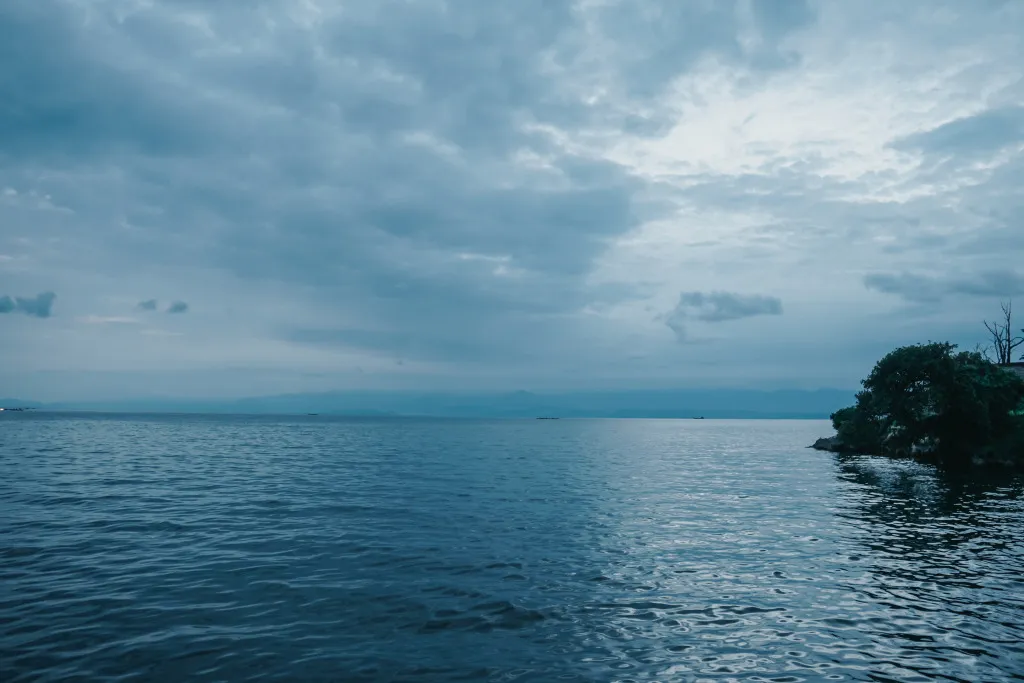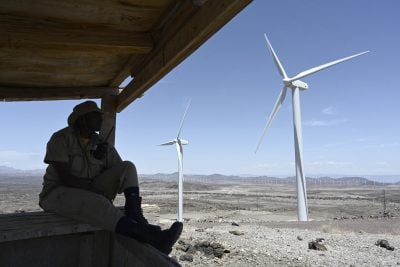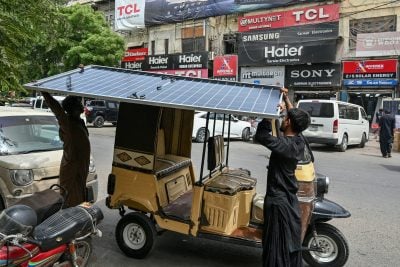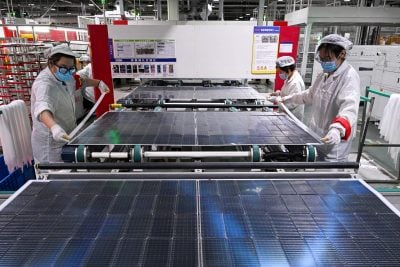Beneath the pristine waters of Lake Albert, framed in the west by the cobalt Blue Mountains, vast reserves of crude oil await exploitation.
Named after Queen Victoria’s consort by the first European to visit the great African lake, it narrowly escaped being renamed after Mobutu Sese Seko, the kleptocratic former president of the Democratic Republic of Congo (DRC), which was known as Zaire under his rule.
No oil has yet been pumped from the lake, but on the eastern side of the lake, in land-locked Uganda, commercial production of reserves estimated at over 6.5bn barrels may commence in 2025, after long delays since initial discovery in 2006. A deal signed in April will see oil firms build a $3.5bn pipeline stretching 1,444km to Tanzania’s Indian Ocean seaport of Tanga to take the oil to the international market.
On the western side of the lake, in a part of the DRC long wracked by conflict, progress has been slower and first oil is further off. However, exploration licences have recently become free for two blocks that may hold over 3bn barrels of oil, according to a 2012 seismic survey. If the oil proves to be recoverable the blocks could prove profitable for the licence holders and provide much needed revenue for the DRC.

Licences revoked
The licences for Blocks 1 and 2 had been held by companies owned by Israeli tycoon Dan Gertler since 2010.
Gertler, who went from gem dealer to investor in Africa’s resource sector, was slapped with US sanctions in 2017 for allegedly profiting from “opaque and corrupt oil deals”. According to the designation, the deals were made possible by his intimate friendship with Joseph Kabila, president of the DRC between 2001 and 2019.
The revelations sparked outrage from Congolese and international rights groups, complicating Gertler’s investments in one of the world’s poorest countries. The US Treasury alleged that “between 2010 and 2012 alone, the DRC reportedly lost over $1.36 billion in revenues from the underpricing of mining assets that were sold to offshore companies linked to Gertler”. Gertler denies all wrongdoing.
When the oil licences came up for renewal this year, after being extended a number of times, the oil ministry under reform-minded President Félix Tshisekedi declared that they had expired.
The British Virgin Islands-registered companies, Caprikat and Foxwhelp, which owned the licences, had not even started drilling exploration, despite carrying out the 2012 seismic survey.
However, a spokesperson for the owner of the two companies, Oil of DR Congo, a subsidiary of Gertler’s Fleurette Group, told the Reuters news agency that the status of the blocks could not be changed because the company had declared force majeure on the projects in 2020 due to the government’s lack of progress in securing a way to export the oil.
“The force majeure was subsequently confirmed in May 2021 by the State Council and therefore remains in place until the reasons for the force majeure are resolved, by law,” the spokesperson said.
In the global oil and gas industry a company’s failure to fulfil its minimum work programme risks forfeiting its licences, says Roderick Bruce, Africa Oil and Gas Risk research director at IHS Markit.
“Though the company is challenging the decision, on face value you could argue that the authorities are exercising their regulatory contractual rights at a renewal stage for the licenses.
“But regulatory processes in DRC can be unpredictable. In the past there have been instances of production-sharing agreements being cancelled while still valid.”
A new deal
Total, the majority shareholder in the fields on the Ugandan side of the lake, signed a $5.1bn deal with Uganda in April in connection with the development of the fields and the construction of the pipeline to Tanga.
The Tanzania-Uganda pipeline is also the only way to bring the oil from the largely landlocked DRC fields to market, Bruce explains.
The blocks are also geologically similar, and potentially linked to the blocks that Total owns in Uganda across Lake Albert.
“The reason these blocks are very interesting is because they are in the same exploration play as the blocks that Total owns in Uganda,” Bruce says.
“That’s why Total is one of the rumoured favourites to take up these blocks now that they are free, because then it can use its own pipeline to export any oil from Uganda to Tanzania.”
Total are rumoured to already be in talks to buy the two blocks, with DRC’s minister of hydrocarbons Didier Budimbu reportedly visiting Paris in July to gauge Total’s interest. Asked by African Business if it was interested in the blocks, the French oil major did not respond. The DRC has also discussed transferring the permits to several other oil companies, including London-listed Tullow Oil Plc, Total SE and Eni SpA.
“You could have an arrangement where Total is the operator and DIG Oil is a minority partner,” Bruce says.
In 2018, the Paris-based International Chamber of Commerce ruled that the DRC had failed to uphold its obligations to DIG Oil. It had prevented the South African oil company from carrying out exploration on fields in the centre of the country and handed over a licence for one of the Lake Albert blocks to Gertler’s company when it had previously signed an agreement for it with DIG Oil.
As a penalty the court ordered the DRC to pay DIG Oil $617.4m with interest, but the government has been fighting the judgement. As part of a settlement DIG Oil is expected to receive $300m in assets and cash. “The modalities of this are still to be finalised, but are not exclusive to oil concessions and may include mining concessions or any other assets or activities,” Andrea Brown, DIG Oil’s chief executive officer told Bloomberg in June.
As part of the settlement, DIG Oil may be offered the blocks, says Bruce.
High-risk investment
However, he stresses that the blocks are an extremely high risk investment.
“There’s no certainty you’re going to find oil. The country is also stalked by insecurity around the blocks and is very insecure from a regulatory perspective, as the DIG Oil case showed.
“There’s a lot of reasons why Total might be hesitant to go in there and spend more money. Particularly as oil companies globally are becoming more particular about which projects they are investing in.”
But a deal with Total might herald the oil bonanza whose revenues could lift millions in Congo’s ramshackle economy out of poverty, says Jimmy Munguriek, a lawyer at Resource Matters, a Brussels-based group that advocates for better resource management.
The international oil major would also be more likely to broker a deal whose terms are transparent, and which complies with international law, Munguriek says.
Total exited Block 3 on Lake Albert in 2019, but had a positive impact on the local community during its time there, he says.
“During the time Total spent in Ituri, the dialogue with the local community was clear, and they listened and interacted with locals. If Total can come to those blocks it’s good news, because we know that it will be transparent and follow up on its responsibilities and activities,” he tells African Business from Bunia, a city 25km west of Lake Albert, where he’s working at the civil society level to ensure an upcoming deal protects the interests of the people of Congo.
As signatories to the Extractive Industries Transparency Initiative, Total is also bound to uphold global standards for the good governance of the oil, gas and mineral resources industry, Munguriek says.
“Through that initiative Total can be monitored in all sectors in the chain of its activities in Congo. This will be good for Congo and future investment in its oil and gas sector.”
But for a new deal to reverse Congo’s resource fortunes, benighted in the past by corruption, brokers need to be transparent on the exact terms of engagement.
Want to continue reading? Subscribe today.
You've read all your free articles for this month! Subscribe now to enjoy full access to our content.
Digital Monthly
£8.00 / month
Receive full unlimited access to our articles, opinions, podcasts and more.
Digital Yearly
£70.00 / year
Our best value offer - save £26 and gain access to all of our digital content for an entire year!
 Sign in with Google
Sign in with Google 




